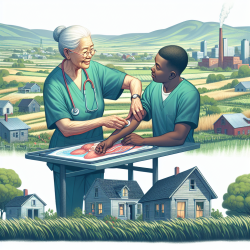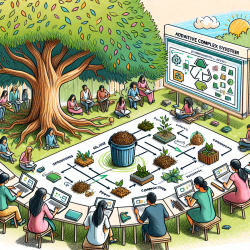Introduction
In the ever-evolving landscape of healthcare, retired nurses who continue to work in rural and remote communities represent a unique and invaluable resource. Their experience and commitment not only fill crucial gaps in healthcare services but also provide insights that can inspire current practitioners to enhance their skills and engagement with their communities. This blog explores key findings from the research article "The Meaning of Nursing Practice for Nurses Who Are Retired Yet Continue to Work in a Rural or Remote Community" and discusses how these insights can be applied to improve outcomes for practitioners and the communities they serve.
Key Insights from the Research
The study highlights several important aspects of retired nurses' contributions to rural and remote communities:
- Work-Life Flexibility: Retired nurses value the ability to control their working hours, which allows them to balance personal commitments with professional responsibilities. This flexibility can be a model for creating more adaptable work environments for all healthcare practitioners.
- Community Engagement: Retired nurses often have deep ties to their communities, which enhances their ability to provide personalized care. Their knowledge of local resources and relationships with community members can serve as a blueprint for practitioners looking to strengthen their community connections.
- Continuous Learning and Mentorship: Despite being retired, these nurses actively seek opportunities to learn and mentor others. Their dedication to professional development and knowledge sharing can inspire current practitioners to pursue lifelong learning and mentorship roles.
Applying These Insights to Improve Practice
Practitioners can leverage the findings from this research to enhance their skills and impact in several ways:
- Embrace Flexibility: By advocating for and adopting flexible work arrangements, practitioners can improve their work-life balance and job satisfaction. This approach can also attract and retain talent in rural and remote areas.
- Foster Community Relationships: Building strong relationships with community members and understanding local needs can lead to more effective and personalized care. Practitioners should seek opportunities to engage with their communities outside of clinical settings.
- Pursue Continuous Learning: Staying updated with the latest developments in healthcare and seeking mentorship opportunities can enhance practitioners' skills and confidence. Engaging in professional development activities can also open new career pathways.
Encouraging Further Research
While the study provides valuable insights, there is still much to learn about the experiences of retired nurses in rural and remote communities. Practitioners are encouraged to engage in further research to explore additional ways to support and collaborate with retired nurses. Understanding their unique challenges and contributions can lead to innovative solutions that benefit both healthcare providers and the communities they serve.
To read the original research paper, please follow this link: The meaning of nursing practice for nurses who are retired yet continue to work in a rural or remote community.










